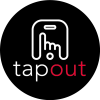
Resources
What is exploitation?
Exploitation refers to the use of children for someone else’s advantage, gratification or profit often resulting in unjust, cruel and harmful treatment of the person involved. These activities are to the detriment of the child’s physical or mental health, education, moral or social-emotional development.
Types of exploitation:
Sexual exploitation
This is when someone is deceived, coerced or forced to take part in sexual activity. Places where someone could be sexually exploited:
Prostitution
Brothels – massage/sauna
Escort agencies
Pole/lap dancing
Forced marriage
Stripping on a web cam
Phone sex lines
Internet chat rooms
Pornography
Mail order brides
Sex tourism
Labour exploitation
This refers to situations where people are coerced to work for little or no remuneration, often under threat of punishment. There are a few means through which a person can be coerced, including:
Use of violence or intimidation
Accumulated debt
Retention of identity papers
Threat of exposure to immigration authorities
All types of labour, within every industry, are susceptible to labour exploitation. Some common sectors and industries that are identified as vulnerable include:
Manufacturing
Factory work
Hospitality
Construction
Agriculture
Fishing
Car washes
Nail bars
Domestic Servitude
A domestic worker or helper is a person who works within their employer’s home, performing a variety of tasks. This arrangement becomes exploitative when there are restrictions on the domestic worker’s movement, and they are forced to work long hours for little pay. They may also suffer physical and sexual abuse.
Places where someone can be in domestic servitude:
In a private home
In a community such as a commune
Forced Marriage:
This is when a person is put under pressure to marry someone. They may be threatened with physical or sexual violence or placed under emotional or psychological distress to achieve these aims.
Situations where you may find forced marriage used:
To gain access into a country
To gain access to benefits
Forced criminality
This is when somebody is forced to carry out criminal activity through coercion or deception. Forced criminality can take many forms, including:
Drug trade, e.g. cannabis cultivation, drug distribution
Begging
Pick-pocketing
Bag snatching
ATM theft
Selling of counterfeit goods
Forced criminality also encompasses social welfare fraud. This takes place when exploiters falsely apply for tax credits and other welfare benefits using the victims’ details. It is not only the state that is the victim of social welfare fraud, there is often horrific abuse used against the individual in order to coerce them into falsely applying for benefits.
Child soldiers
These are children and young people, ranging from as young as four up to 18, who are used for any military purpose. It affects both males and females.
Children may be used for frontline combat – which means they are made to commit acts of violence – or within auxiliary roles, such as informants or kitchen hands. Often, the children are also sexually abused.
This type of practice is most prevalent in parts of Africa and Asia.
Organ harvesting
The trafficking in organs involves removing a part of the body, commonly the kidneys and liver, to sell often as an illegal trade. Organs can be taken in a number of ways:
Trade – a victim formally or informally agrees to sell an organ, but are then cheated because they are not paid for the organ, or are paid less than the promised price
Ailments – a vulnerable person is treated for an ailment, which may or may not exist, and the organs are removed without the victim’s knowledge
Extortion – a victim may be kidnapped from their family and organs removed without consent